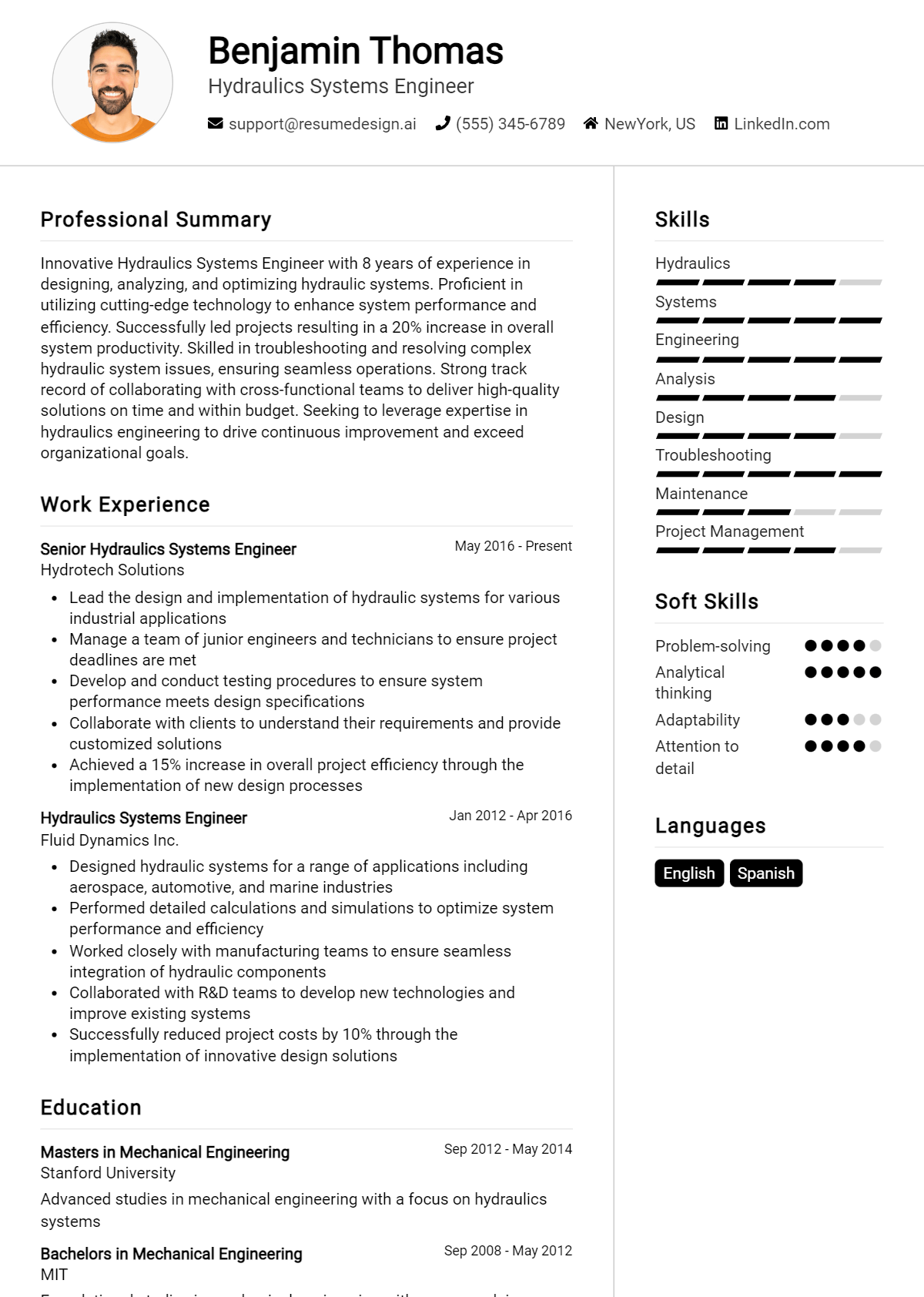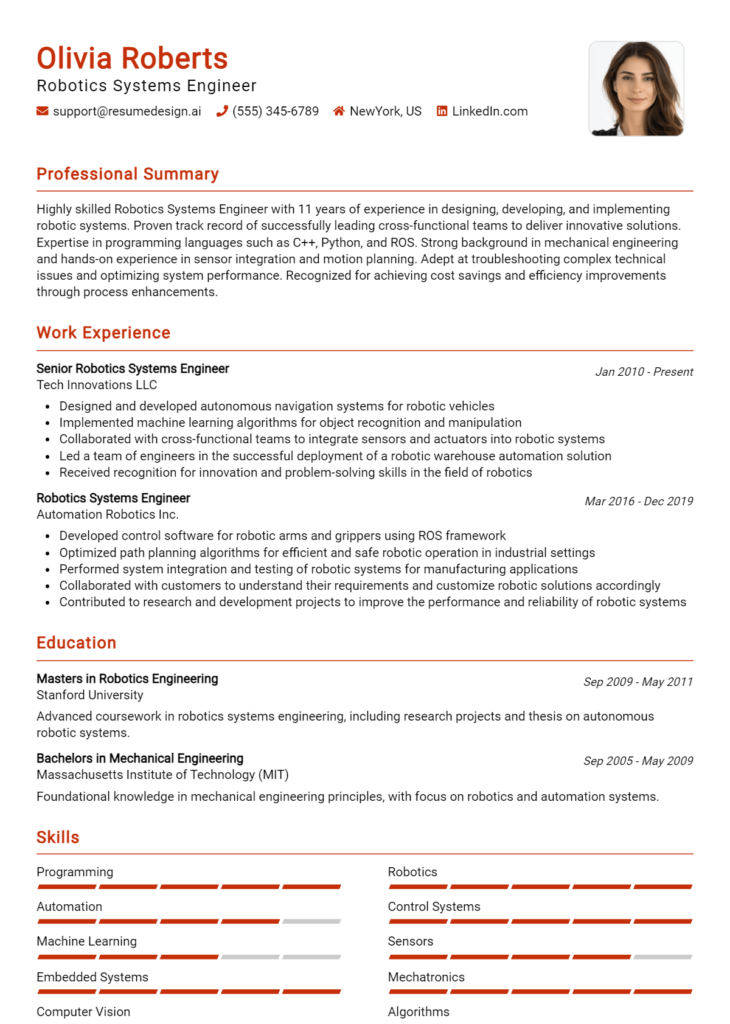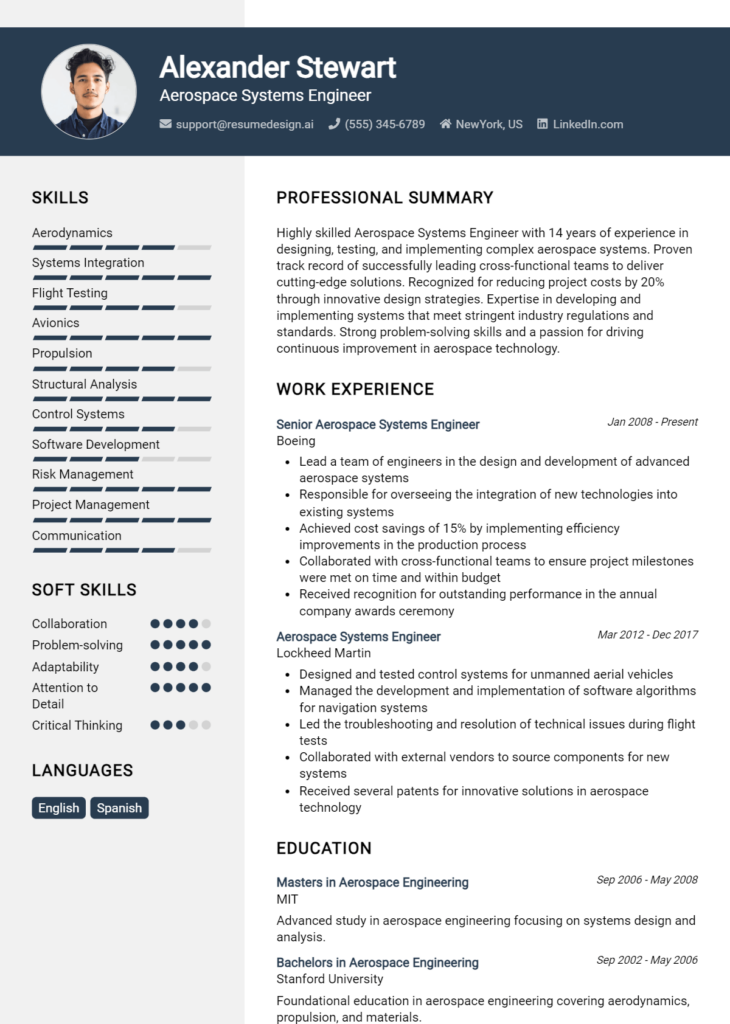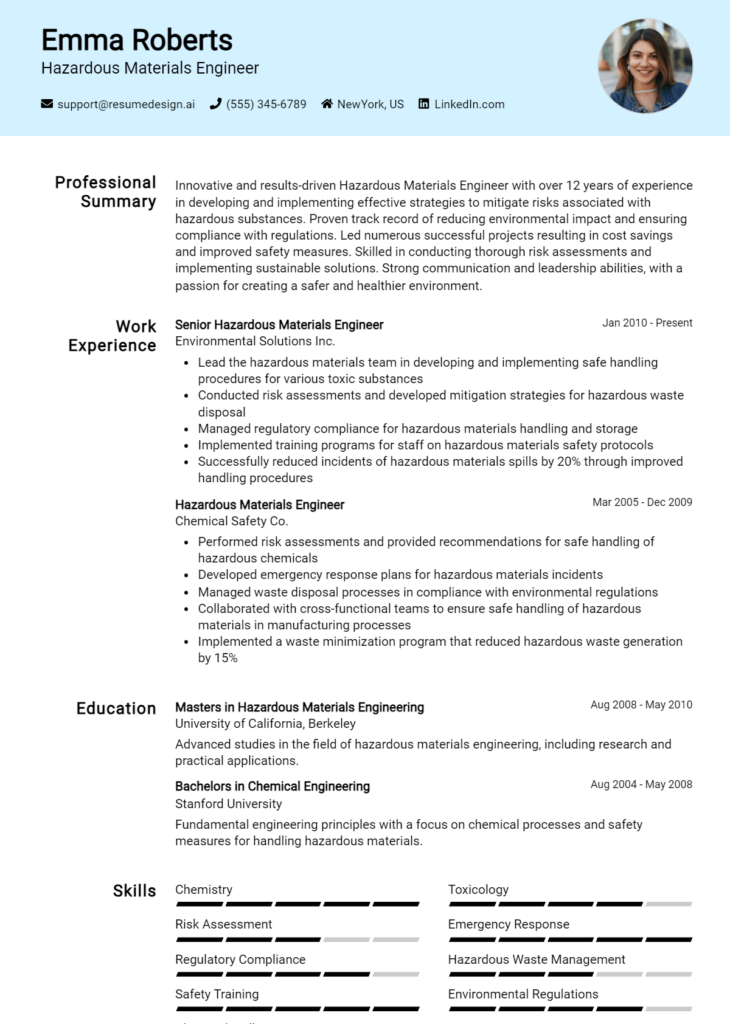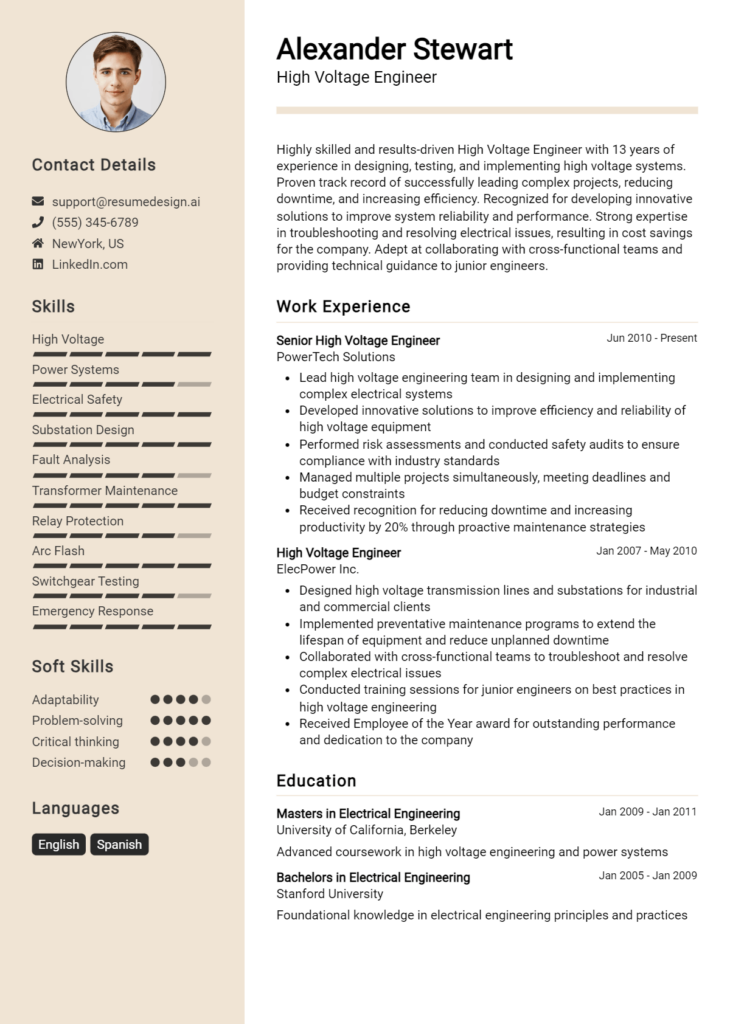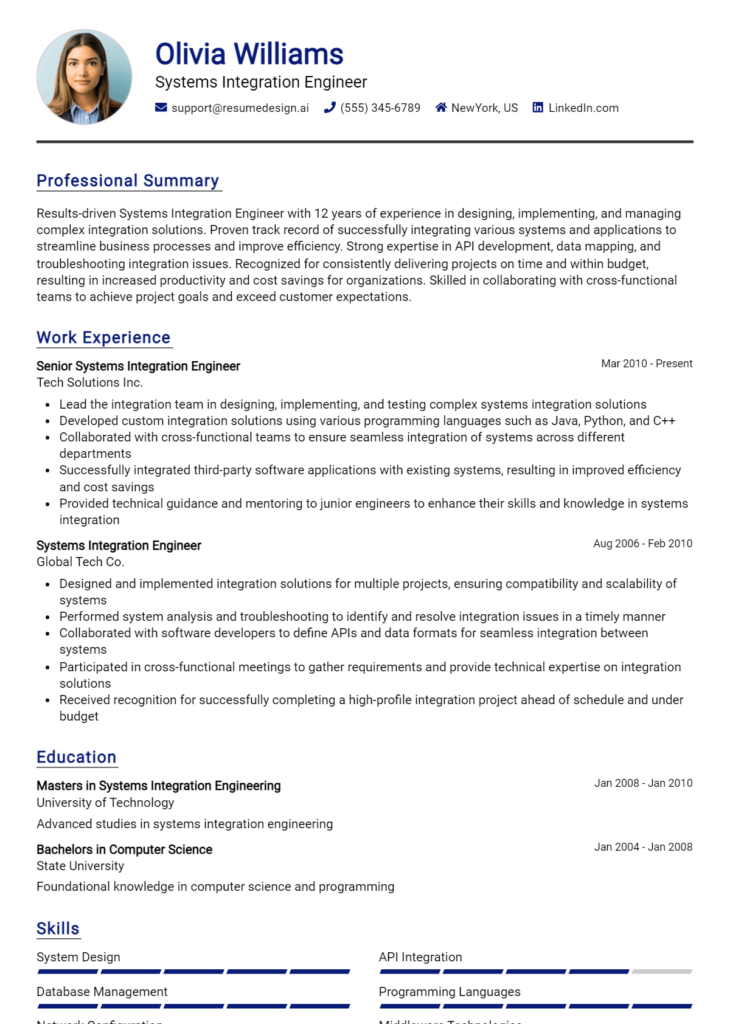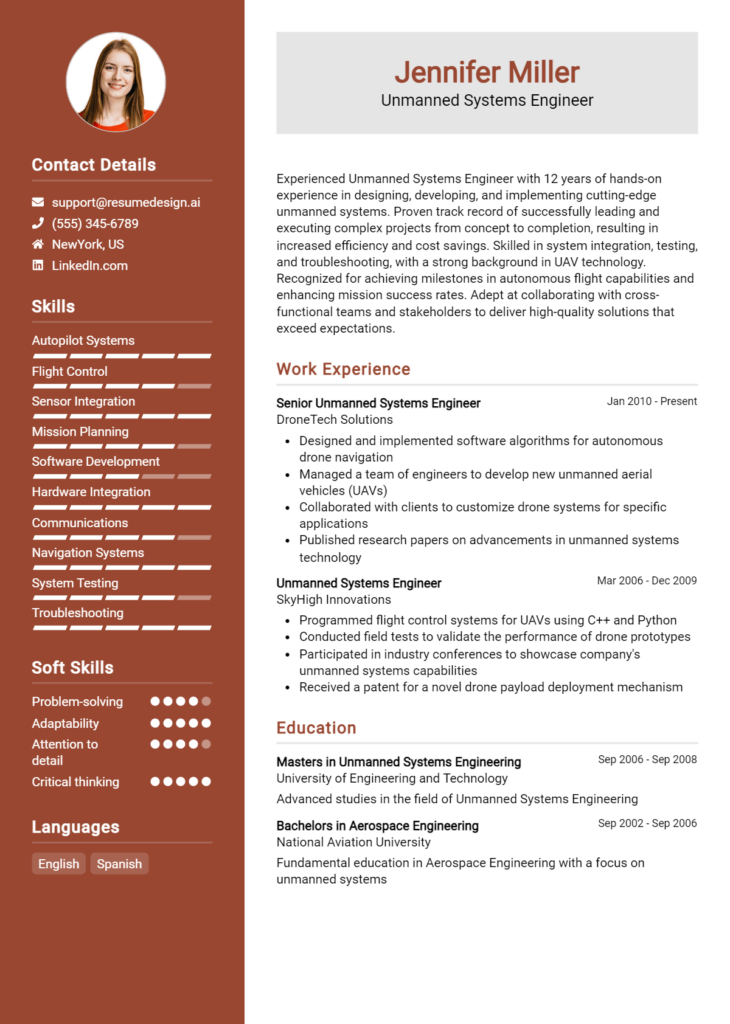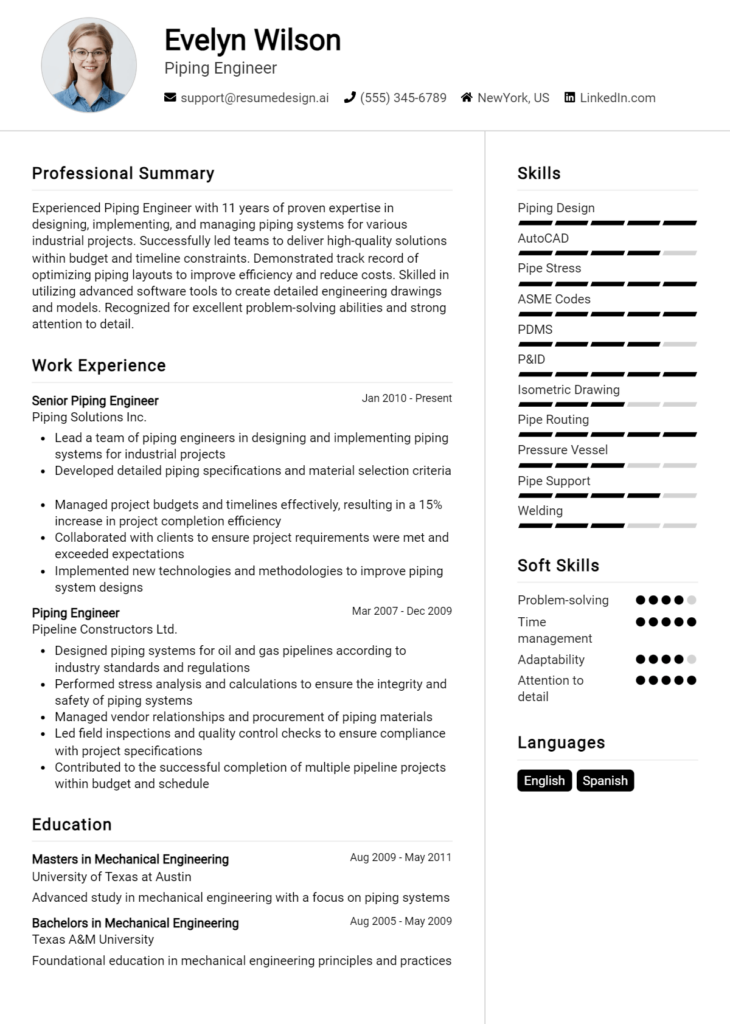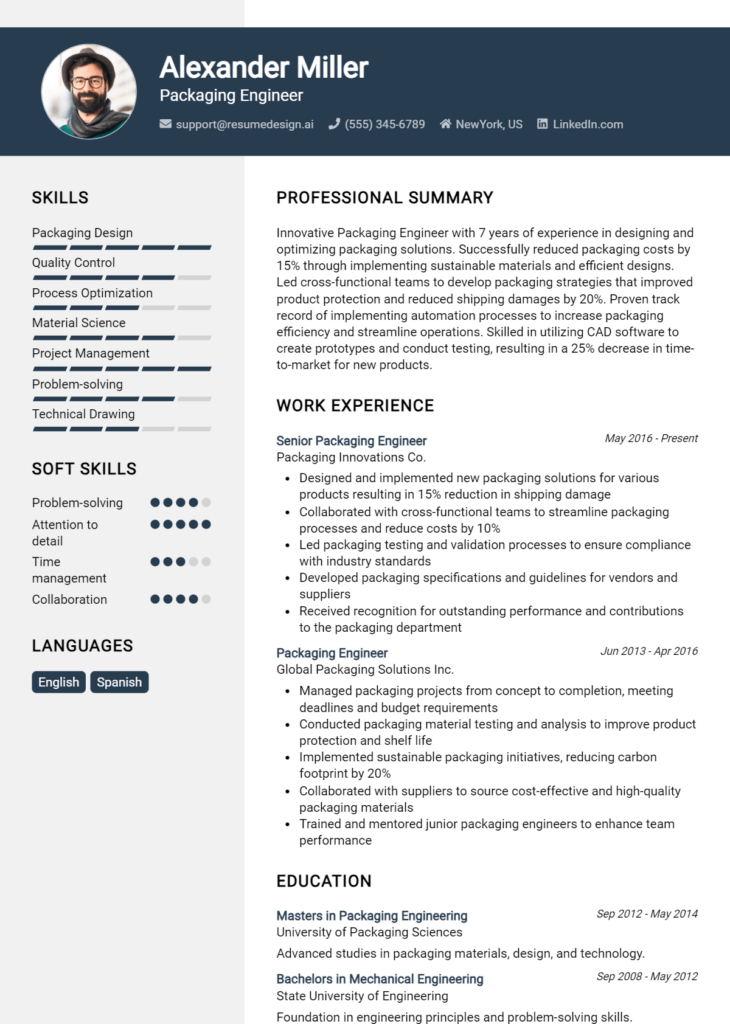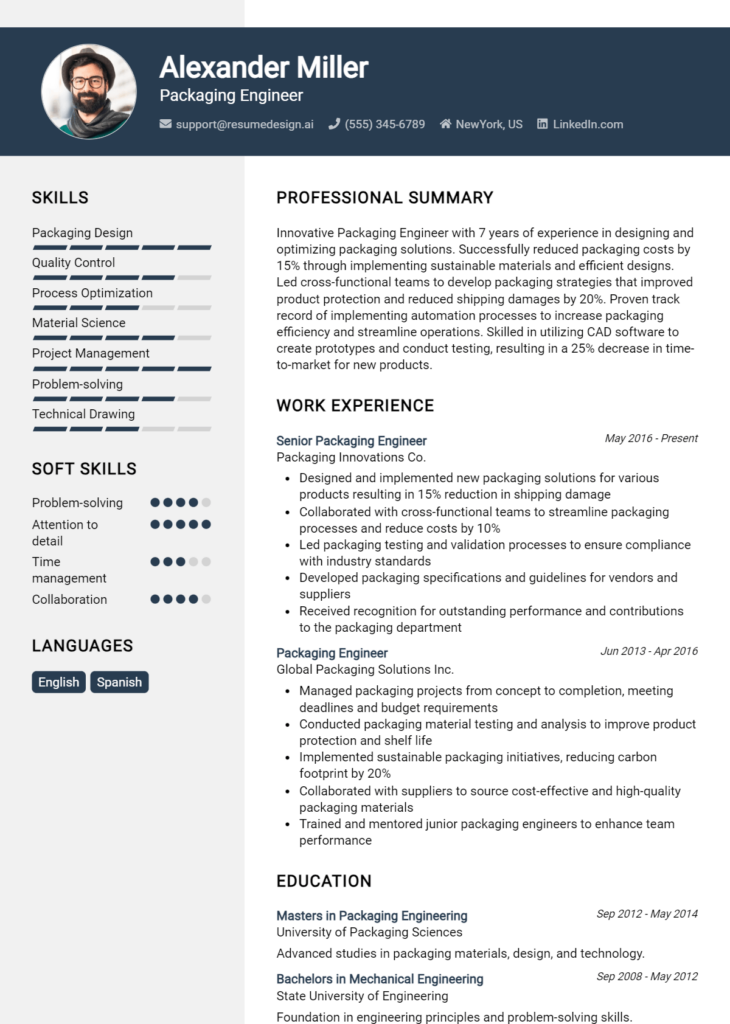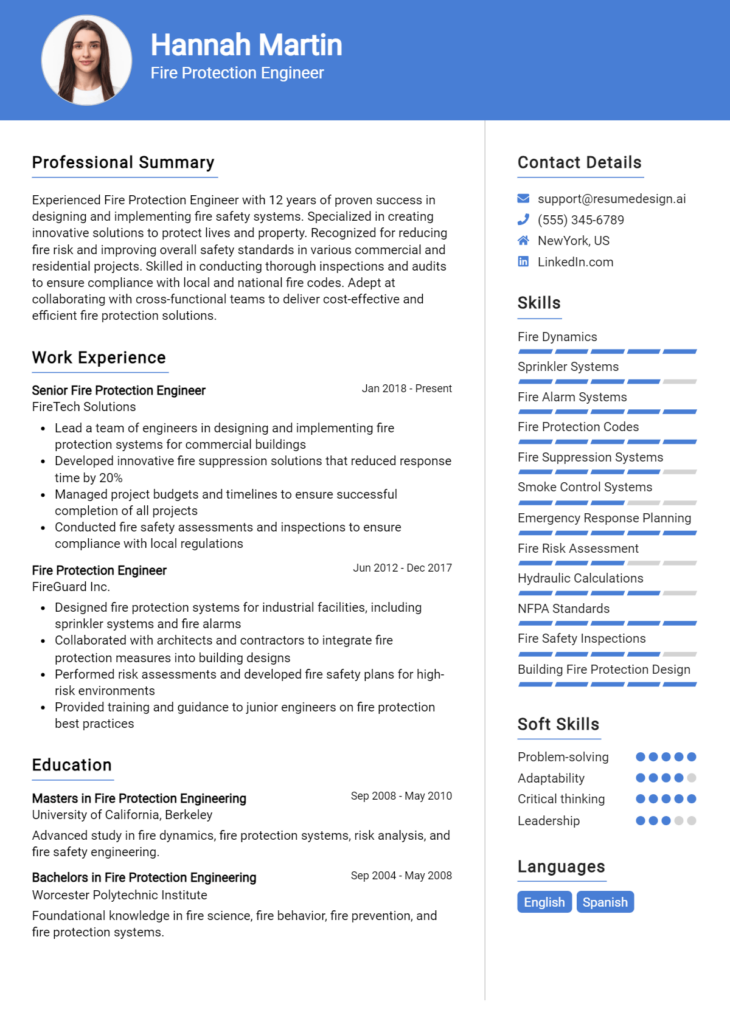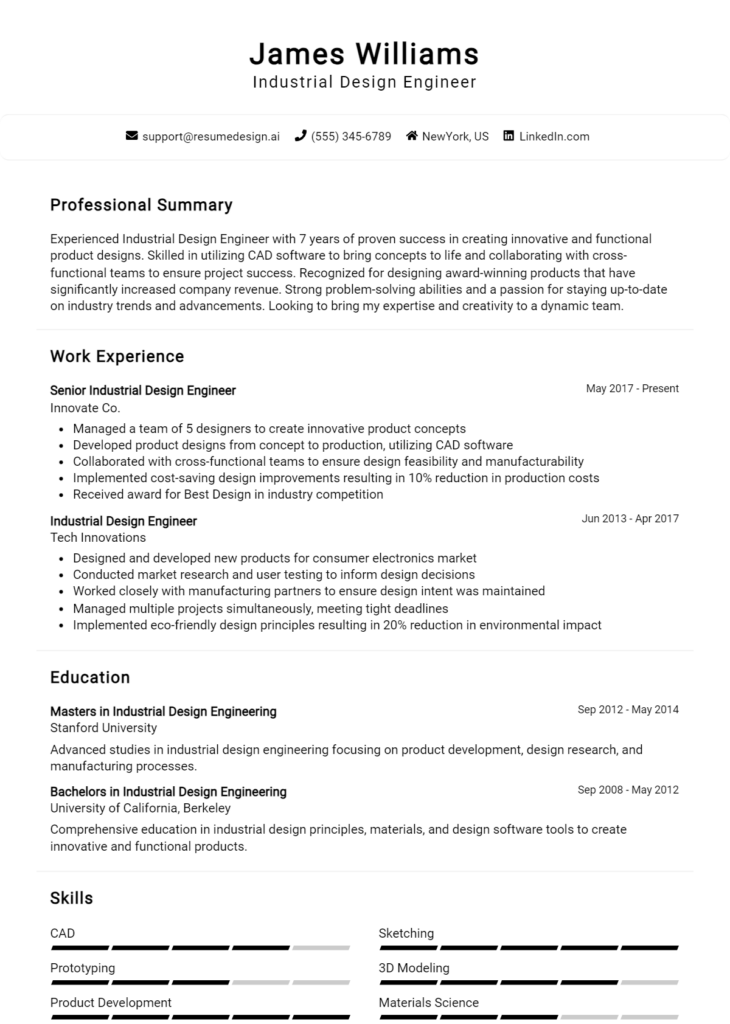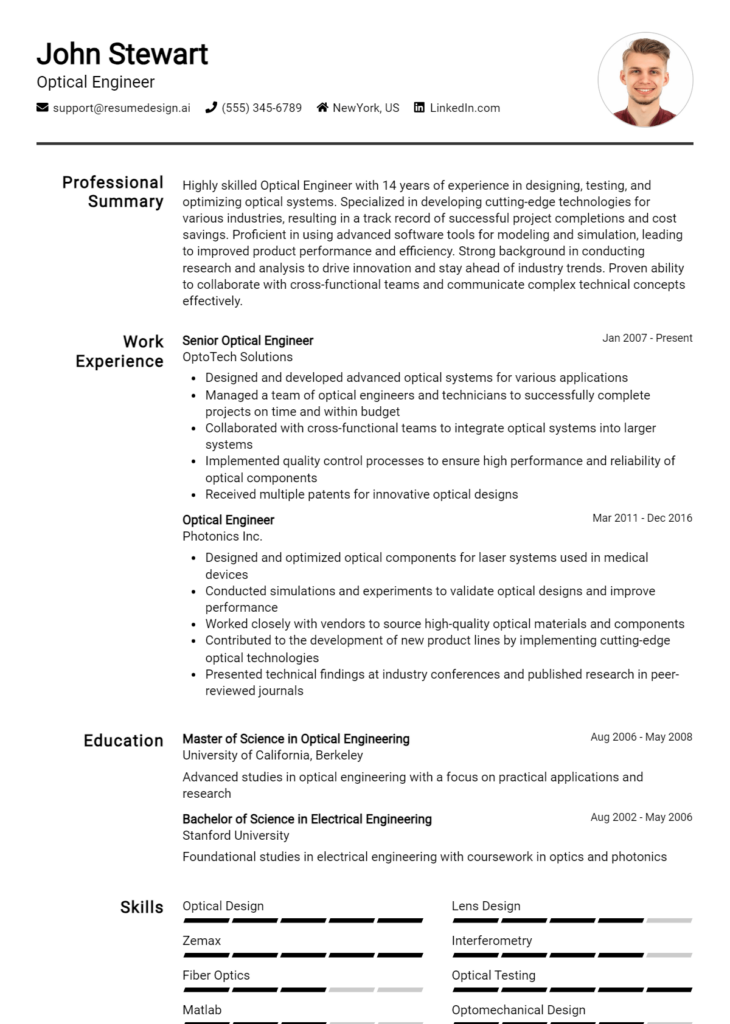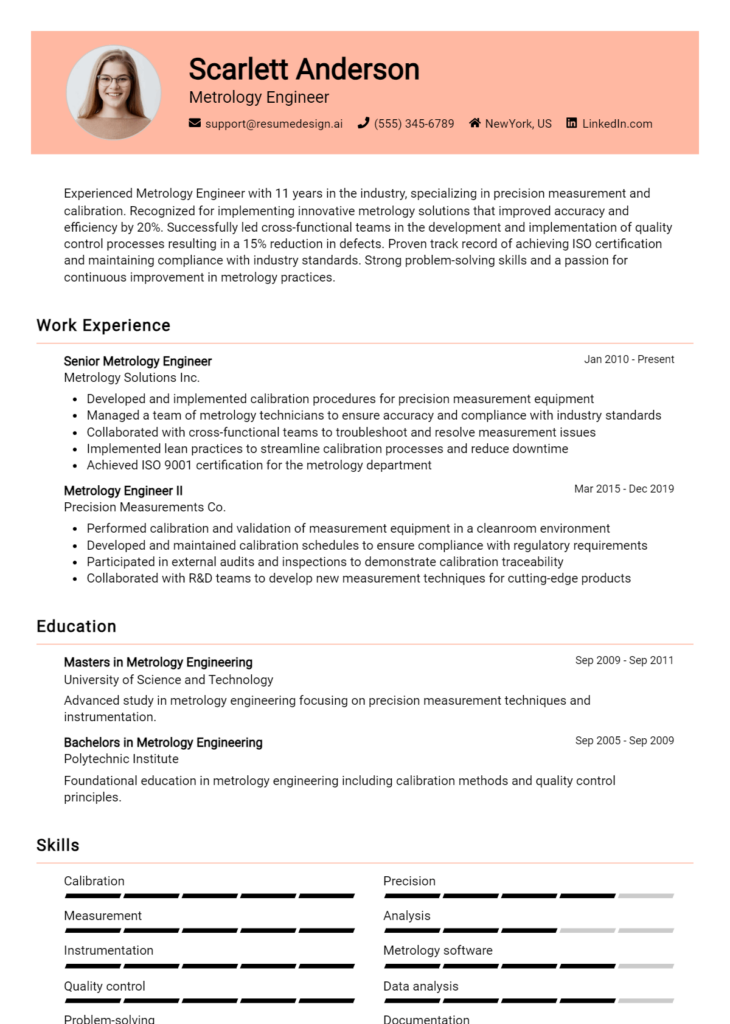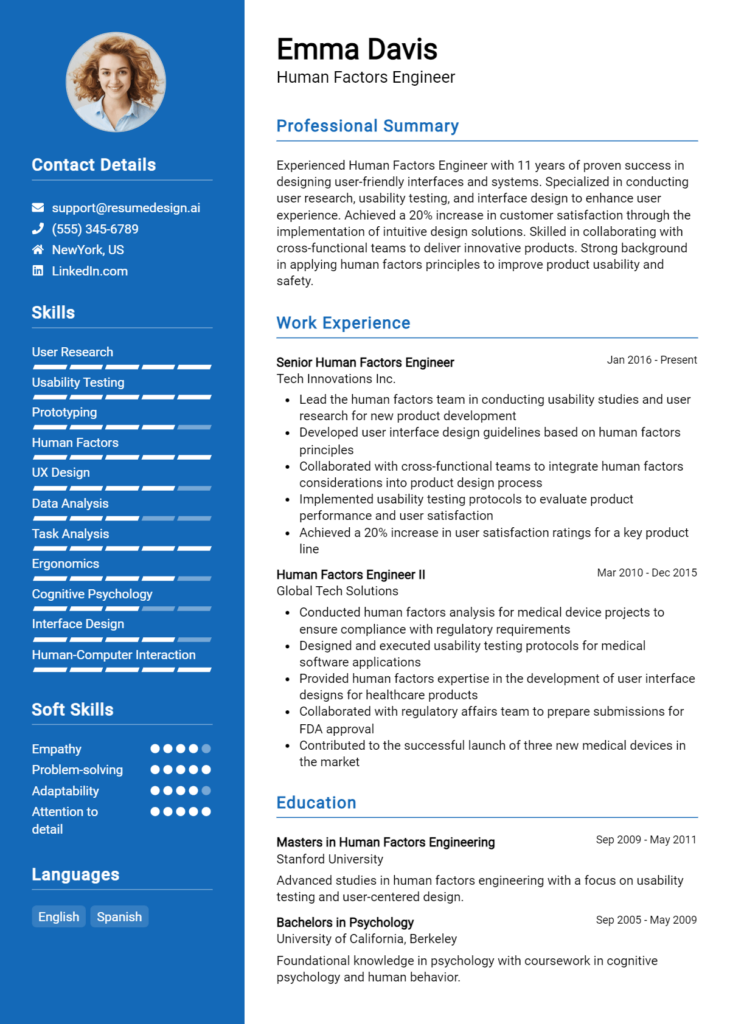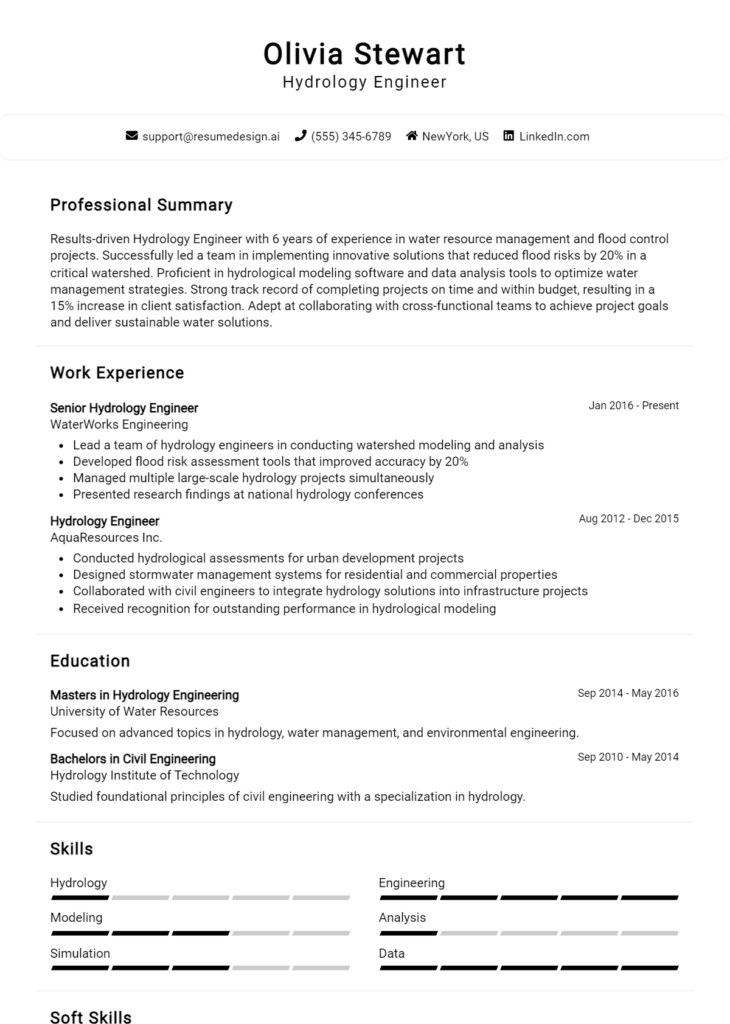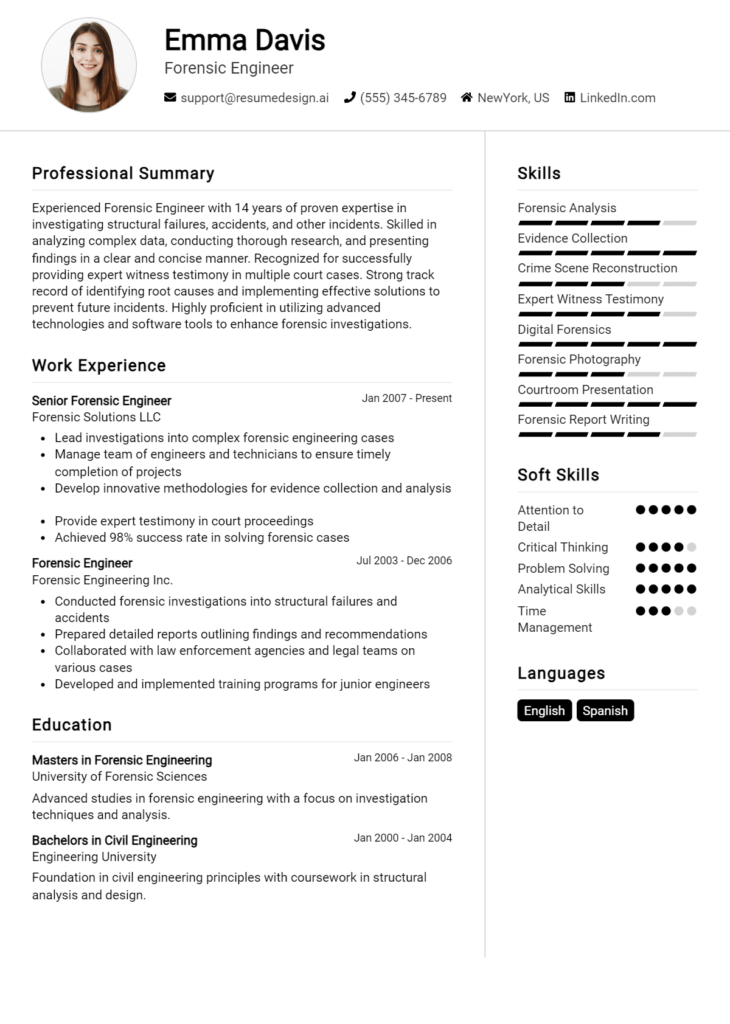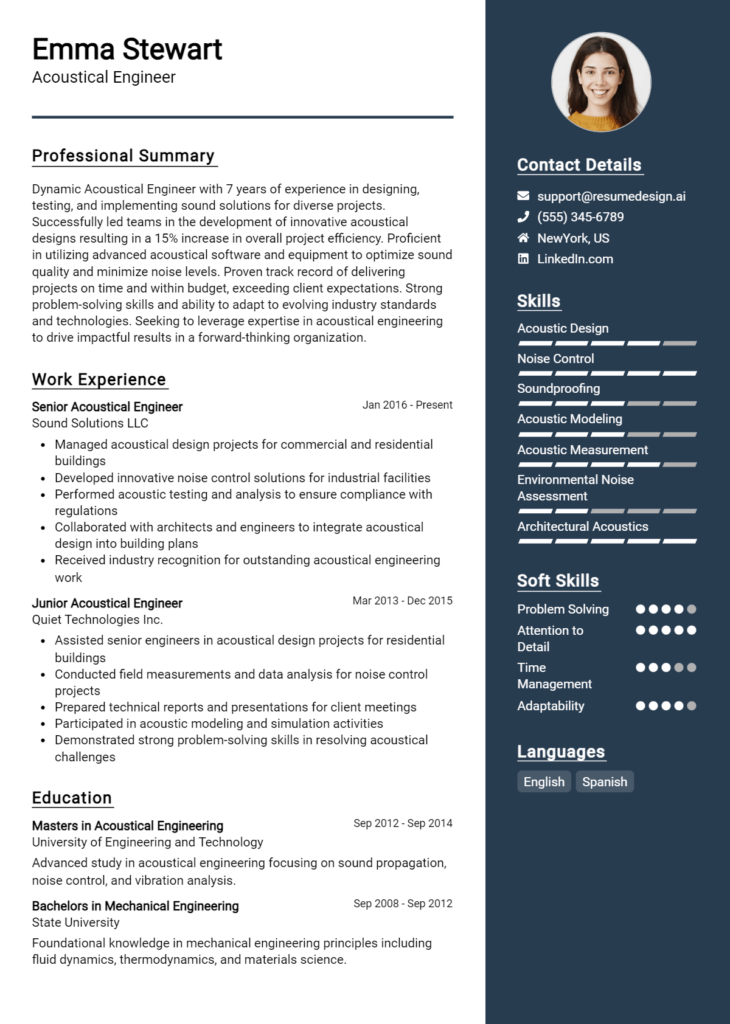Hydraulics Systems Engineer Core Responsibilities
A Hydraulics Systems Engineer plays a crucial role in designing, analyzing, and optimizing hydraulic systems, bridging engineering, manufacturing, and maintenance departments. This position requires strong technical skills in fluid dynamics, as well as operational expertise to ensure system reliability and efficiency. Problem-solving abilities are paramount for troubleshooting issues and enhancing system performance. These skills significantly contribute to the organization's overall goals, and a well-structured resume can effectively showcase these qualifications to potential employers.
Common Responsibilities Listed on Hydraulics Systems Engineer Resume
- Design and develop hydraulic systems and components.
- Conduct performance analysis and optimization of hydraulic circuits.
- Collaborate with cross-functional teams to integrate hydraulic systems.
- Perform troubleshooting and diagnostics on hydraulic equipment.
- Prepare technical documentation and reports for system designs.
- Ensure compliance with industry standards and safety regulations.
- Conduct testing and validation of hydraulic systems.
- Provide technical support and training to maintenance personnel.
- Review and refine existing hydraulic systems for improved efficiency.
- Develop and manage project timelines and budgets.
- Research new technologies and methods to enhance system performance.
- Participate in design reviews and project meetings.
High-Level Resume Tips for Hydraulics Systems Engineer Professionals
In today's competitive job market, a well-crafted resume is essential for Hydraulics Systems Engineer professionals looking to make a lasting impression on potential employers. Your resume serves as the first point of contact, showcasing not just your skills and experience but also your ability to communicate effectively and present your achievements in a compelling manner. It is crucial to reflect both your technical expertise and your accomplishments in a way that resonates with hiring managers. This guide will provide practical and actionable resume tips specifically tailored for Hydraulics Systems Engineer professionals, helping you stand out in a crowded field.
Top Resume Tips for Hydraulics Systems Engineer Professionals
- Tailor your resume to match the specific job description, using keywords that align with the requirements of the position.
- Highlight relevant experience in hydraulics systems design, maintenance, and troubleshooting to demonstrate your expertise.
- Quantify your achievements by including metrics, such as project budgets, timelines, and any cost savings you generated.
- Showcase industry-specific skills, such as proficiency in hydraulic modeling software, fluid dynamics principles, and system optimization techniques.
- Include certifications and training relevant to hydraulics engineering, such as those from ASME or SAE, to enhance your credibility.
- Utilize a clean and professional layout that makes it easy for hiring managers to quickly scan your resume for key information.
- Incorporate a summary statement at the top of your resume that succinctly encapsulates your career goals and core competencies.
- Emphasize teamwork and collaboration experiences in projects, as hydraulics engineering often requires working closely with cross-functional teams.
- Keep your resume concise, ideally one to two pages, ensuring that every word adds value and relevance to your application.
By implementing these tips, you can significantly increase your chances of landing a job in the Hydraulics Systems Engineer field. A well-structured and targeted resume not only highlights your qualifications but also demonstrates your commitment to professionalism, making you a standout candidate in the eyes of potential employers.
Why Resume Headlines & Titles are Important for Hydraulics Systems Engineer
In the competitive field of hydraulics engineering, a compelling resume headline or title is crucial for capturing the attention of hiring managers. This brief yet powerful statement serves as a first impression, summarizing a candidate's key qualifications in a succinct manner. A well-crafted headline can immediately communicate expertise, relevant experience, and unique skills, making it easier for recruiters to identify top talent. It should be concise, relevant, and tailored directly to the job being applied for, ensuring that it resonates with the specific requirements of the role.
Best Practices for Crafting Resume Headlines for Hydraulics Systems Engineer
- Make it concise: Aim for clarity and brevity while conveying essential information.
- Be role-specific: Use terminology and keywords that are relevant to hydraulics engineering.
- Highlight key strengths: Focus on your most significant skills or accomplishments that align with the job description.
- Use action-oriented language: Start with strong verbs or phrases that convey confidence and expertise.
- Avoid jargon: Ensure that the language is accessible and understandable to a broad audience.
- Personalize it: Tailor the headline to reflect the specific job you are applying for, demonstrating your interest and fit.
- Keep it professional: Maintain a formal tone that reflects the seriousness of the engineering profession.
- Include relevant certifications: If applicable, mention any credentials that enhance your qualifications as a hydraulics systems engineer.
Example Resume Headlines for Hydraulics Systems Engineer
Strong Resume Headlines
Experienced Hydraulics Systems Engineer with 10+ Years in Design and Implementation
Innovative Hydraulic Engineer Specializing in Advanced Fluid Power Solutions
Results-Driven Hydraulics Engineer with Proven Success in Project Management and Optimization
Weak Resume Headlines
Engineer Seeking Opportunities
Hydraulic Systems Engineer at Your Service
The strong headlines are effective because they combine specific qualifications with clear industry relevance, instantly communicating the candidate's expertise to hiring managers. They highlight years of experience, specific skills, and achievements that set the candidate apart. On the other hand, the weak headlines lack specificity and do not convey any real value or unique selling points, making them forgettable and less impactful in a competitive job market.
Writing an Exceptional Hydraulics Systems Engineer Resume Summary
A well-crafted resume summary is essential for a Hydraulics Systems Engineer as it serves as the first impression a hiring manager will have of a candidate. This brief yet powerful statement quickly encapsulates key skills, relevant experience, and notable accomplishments, allowing the candidate to stand out among a sea of applicants. A strong summary not only highlights the engineer's technical expertise and achievements but also showcases their ability to contribute to the company's success. By being concise and impactful, and tailored specifically to the job being applied for, a resume summary can significantly increase the chances of capturing a hiring manager's attention.
Best Practices for Writing a Hydraulics Systems Engineer Resume Summary
- Quantify achievements to demonstrate impact, such as cost savings or efficiency improvements.
- Focus on key skills relevant to hydraulics systems engineering, such as design, analysis, and troubleshooting.
- Tailor the summary to the specific job description to align with the employer's needs and expectations.
- Use industry-specific terminology to convey expertise and familiarity with hydraulic systems.
- Highlight relevant certifications and professional development that add value to your candidacy.
- Keep it concise, ideally within 3-5 sentences, to maintain the reader's attention.
- Showcase a mix of technical knowledge and soft skills, such as teamwork and communication abilities.
- Avoid jargon that might confuse hiring managers who may not have a technical background.
Example Hydraulics Systems Engineer Resume Summaries
Strong Resume Summaries
Results-driven Hydraulics Systems Engineer with over 8 years of experience in designing and optimizing hydraulic systems for heavy machinery, achieving a 25% increase in operational efficiency and a 15% reduction in maintenance costs through innovative solutions and rigorous testing.
Detail-oriented engineer specializing in hydraulic circuit design and simulation, proficient in using AutoCAD and MATLAB. Successfully led a project that reduced system weight by 20% while enhancing performance, resulting in a $200,000 savings in manufacturing costs.
Dynamic Hydraulics Systems Engineer with a proven track record of implementing system upgrades that improved reliability by 30%. Excellent communication skills, enabling effective collaboration with cross-functional teams to meet tight deadlines.
Weak Resume Summaries
Experienced engineer looking for a position in hydraulics systems. Familiar with various tools and techniques.
Hydraulics Systems Engineer with a background in design and analysis. Seeking to apply skills in a new role.
The examples of strong resume summaries demonstrate a clear focus on quantifiable results, specific skills, and how the engineer's experience directly relates to the role they are pursuing. In contrast, the weak resume summaries lack detail, do not provide measurable outcomes, and appear generic, making it difficult for hiring managers to assess the candidate's qualifications or fit for the position.
Work Experience Section for Hydraulics Systems Engineer Resume
The work experience section of a Hydraulics Systems Engineer resume is crucial as it provides potential employers with insights into a candidate's technical skills, project management capabilities, and the ability to deliver high-quality engineering solutions. This section not only highlights hands-on experience with hydraulic systems but also emphasizes the candidate's proficiency in leading teams, collaborating with cross-functional groups, and achieving measurable results. Quantifying achievements, such as percentage improvements in system efficiency or cost savings, and aligning the experience with industry standards are essential to demonstrating competence and value within the field.
Best Practices for Hydraulics Systems Engineer Work Experience
- Use action verbs to convey your responsibilities and achievements clearly.
- Quantify your results, such as system performance improvements or cost reductions.
- Highlight leadership roles or initiatives taken in team settings.
- Ensure alignment of your experiences with industry standards and best practices.
- Include relevant software and tools used in hydraulic system design and analysis.
- Focus on specific projects that showcase your problem-solving abilities.
- Tailor your experiences to the job description to emphasize relevant skills.
- Include certifications or additional training that enhances your expertise.
Example Work Experiences for Hydraulics Systems Engineer
Strong Experiences
- Led a team of engineers to design and implement a new hydraulic system for a manufacturing plant, resulting in a 30% increase in production efficiency and a 15% reduction in operational costs.
- Developed and validated a hydraulic simulation model that improved system reliability by 25%, significantly reducing maintenance downtime.
- Collaborated with cross-functional teams to deliver a custom hydraulic solution for a client, achieving a 20% faster project completion time than initially scheduled.
- Managed the integration of advanced hydraulic control systems into existing machinery, enhancing overall system performance and user satisfaction by 40%.
Weak Experiences
- Worked on various hydraulic projects in different capacities.
- Assisted team members with hydraulic system issues.
- Participated in design meetings for hydraulic systems.
- Helped with the maintenance of hydraulic equipment.
The examples listed above are considered strong because they provide specific, quantifiable outcomes that illustrate the candidate's impact on projects and their ability to lead and innovate within the field. In contrast, the weak experiences lack detail and measurable results, making it difficult for employers to assess the candidate's true skills and contributions. Strong experiences clearly demonstrate expertise and value, while weak experiences fail to convey significant accomplishments or technical proficiency.
Education and Certifications Section for Hydraulics Systems Engineer Resume
The education and certifications section of a Hydraulics Systems Engineer resume is crucial in establishing the candidate's foundational knowledge and expertise within the field. This section not only showcases the academic background that underpins the technical skills required for the role but also highlights industry-relevant certifications and ongoing professional development efforts. By providing details about relevant coursework, specialized training, and recognized credentials, candidates can significantly enhance their credibility and demonstrate their alignment with the demands of the job, making a compelling case to potential employers.
Best Practices for Hydraulics Systems Engineer Education and Certifications
- Include only degrees and certifications that are relevant to hydraulics and engineering.
- List the most advanced degrees first, followed by certifications and relevant coursework.
- Highlight industry-recognized certifications, such as those from the Society of Automotive Engineers (SAE) or the International Fluid Power Society (IFPS).
- Provide details about specific courses or projects that demonstrate expertise in hydraulic systems.
- Use clear and concise language to describe each entry, focusing on its relevance to the job role.
- Include dates of attainment to show a timeline of professional development and ensure certifications are current.
- Consider including any specialized training or workshops that are pertinent to hydraulics systems engineering.
- Tailor this section to reflect the specific requirements mentioned in the job description.
Example Education and Certifications for Hydraulics Systems Engineer
Strong Examples
- Bachelor of Science in Mechanical Engineering, University of XYZ, 2018
- Certified Fluid Power Specialist (CFPS), International Fluid Power Society, 2021
- Coursework in Hydraulic Systems Design, Advanced Fluid Mechanics, and Control Systems.
- Master’s Degree in Hydraulic Engineering, University of ABC, 2021
Weak Examples
- Bachelor of Arts in English Literature, University of LMN, 2015
- Certification in Basic Computer Skills, Tech Training Institute, 2019
- Unrelated coursework in Graphic Design and Arts.
- Outdated certification in Automotive Repair, obtained in 2010.
The strong examples provided are considered relevant as they directly align with the qualifications and skills necessary for a Hydraulics Systems Engineer, showcasing a solid educational foundation and industry-recognized credentials. Conversely, the weak examples illustrate educational qualifications and certifications that lack relevance to the role, highlighting outdated or unrelated fields of study and skills that do not contribute to the candidate's suitability for a position in hydraulics systems engineering.
Top Skills & Keywords for Hydraulics Systems Engineer Resume
In the competitive field of hydraulics engineering, possessing the right skills is paramount for success and career advancement. A well-crafted resume that highlights both hard and soft skills can make a significant difference in securing job opportunities. Employers seek candidates who not only demonstrate technical expertise but also possess strong interpersonal abilities, as collaboration and communication are essential in engineering projects. Therefore, a comprehensive resume that effectively showcases these skills can set a candidate apart from others. For more insights into enhancing your resume, explore our resource on skills and work experience.
Top Hard & Soft Skills for Hydraulics Systems Engineer
Hard Skills
- Fluid mechanics
- Hydraulic system design
- CAD software proficiency (e.g., AutoCAD, SolidWorks)
- Circuit analysis and design
- Troubleshooting hydraulic systems
- System modeling and simulation
- Pressure and flow measurement techniques
- Compliance with industry standards (e.g., ISO, ANSI)
- Component selection and specification
- Hydraulic system maintenance and repair
- Data analysis and interpretation
- Project management tools (e.g., MS Project)
- Optimization of hydraulic systems
- Technical documentation and reporting
Soft Skills
- Effective communication
- Team collaboration
- Problem-solving aptitude
- Attention to detail
- Time management
- Adaptability and flexibility
- Critical thinking
- Leadership capabilities
- Conflict resolution
- Creative thinking
- Decision-making skills
- Customer service orientation
- Initiative and self-motivation
- Listening skills
- Interpersonal skills
- Negotiation skills
- Emotional intelligence
Stand Out with a Winning Hydraulics Systems Engineer Cover Letter
I am writing to express my interest in the Hydraulics Systems Engineer position as advertised. With a solid educational background in mechanical engineering and over five years of hands-on experience in hydraulic system design and analysis, I am excited about the opportunity to contribute to your team. My passion for developing innovative hydraulic solutions, combined with my technical expertise and problem-solving skills, positions me as a strong candidate for this role.
In my previous role at XYZ Engineering, I successfully led the design and implementation of hydraulic systems for various industrial applications, including excavators and material handling equipment. My work involved conducting rigorous simulations and analyses to optimize system performance and efficiency. I collaborated closely with cross-functional teams to ensure that the systems met both operational requirements and safety standards. Through these experiences, I have honed my ability to troubleshoot complex hydraulic issues and develop effective solutions under tight deadlines.
I am particularly drawn to this opportunity at your organization due to your commitment to innovation and sustainability in hydraulic technology. I am eager to bring my expertise in fluid dynamics, system modeling, and control systems to your team. I am also committed to continuous improvement and am always seeking out new technologies and methodologies that can enhance system performance and reliability. I believe that my proactive approach and dedication to excellence would be a valuable asset to your engineering department.
Thank you for considering my application. I look forward to the opportunity to discuss how my background, skills, and enthusiasms align with the goals of your team. I am eager to contribute to the continued success of your projects and to help advance the field of hydraulics engineering.
Common Mistakes to Avoid in a Hydraulics Systems Engineer Resume
When crafting a resume for a Hydraulics Systems Engineer position, it’s crucial to present your skills and experience effectively. However, many candidates fall into common pitfalls that can undermine their chances of landing an interview. Avoiding these mistakes can make a significant difference in how your qualifications are perceived by hiring managers. Here are some common mistakes to watch out for in your resume:
Lack of Specificity: Using vague language and generalities can make your accomplishments seem less impressive. Instead, quantify your achievements with specific metrics or results to demonstrate your impact.
Ignoring Keywords: Failing to incorporate relevant keywords from the job description can result in your resume being overlooked by Applicant Tracking Systems (ATS). Tailor your resume to include industry-specific terms that align with the role.
Overloading with Technical Jargon: While technical proficiency is essential, bombarding the reader with excessive jargon can be overwhelming. Strike a balance by explaining complex concepts in an understandable way.
Neglecting Soft Skills: Focusing solely on technical abilities can lead to an incomplete picture of your qualifications. Highlighting soft skills, such as teamwork, communication, and problem-solving, can demonstrate your ability to work collaboratively in engineering environments.
Poor Formatting: A cluttered or unprofessional layout can detract from your content. Use clear headings, bullet points, and consistent font styles to enhance readability and create a polished appearance.
Omitting Relevant Experience: Some candidates make the mistake of leaving out relevant internships, co-op positions, or projects. Even if they were not full-time roles, these experiences can showcase your hands-on knowledge in hydraulics systems.
Failing to Customize for Each Application: Sending out a one-size-fits-all resume can be detrimental. Tailor your resume for each application, emphasizing the most relevant experiences and skills that align with the specific job requirements.
Not Proofreading: Typos and grammatical errors can signal a lack of attention to detail. Always proofread your resume multiple times and consider having someone else review it to catch any mistakes you might have missed.
Conclusion
As a Hydraulics Systems Engineer, your role is pivotal in the design, development, and optimization of hydraulic systems across various industries. Key responsibilities include analyzing system specifications, conducting fluid dynamics simulations, and collaborating with multidisciplinary teams to ensure the integration of hydraulic components. Additionally, staying updated with the latest industry trends and technologies will enhance your problem-solving skills and improve system efficiency.
In this competitive field, having a well-crafted resume is essential to showcase your qualifications and experience effectively. It’s important to highlight your technical skills, project management experience, and any relevant certifications to stand out to potential employers.
To ensure your resume reflects your expertise and captures the attention of hiring managers, we encourage you to take advantage of our resources. Explore our resume templates to find a design that suits your style. Use our resume builder to create a polished document that highlights your strengths. Don’t forget to check out our resume examples for inspiration, and consider using our cover letter templates to complement your application.
Take the next step in your career by reviewing your Hydraulics Systems Engineer resume today!

